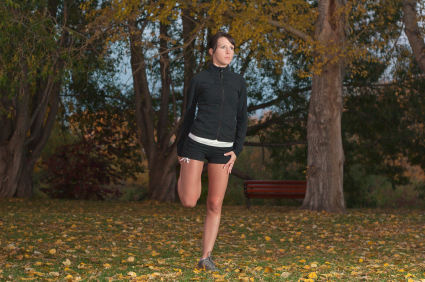A few years ago I was at the doctor’s office for an annual check-up. The nurse asked me to stand on the scale. I hopped on and she told me the number, “134.” Next, she escorted me into the room and left me by myself.
What happened next is very significant. I looked in the mirror and thanked God for my curves and my healthy body. And I thanked God for something even more important. My freedom! It is so liberating to look at weight and clothing size as simply a number.
There was a time when I weighed 116. Quite honestly, back then I considered 120 lbs or more to be unacceptable. I wasn’t very healthy mentally or physically. My philosophy was the lower the number and the smaller the pants size, the better.
Hopefully, body image is not something you struggle with. But if you are someone who does and are tired of it, you may be wondering how I have become so comfortable in my own skin. Let me share some secrets with you.
Ignore your scale for a week. I have nothing against weighing yourself periodically, but this day and night weighing in can drive you insane. Weight fluctuates for many reasons. If you are someone who looks at those numbers as simply data and do not get emotional about it, I see no issue with a daily weigh-in.
However, if you get all worked up or even depressed, then I suggest a once a week weigh-in. It should be on the same day, same time of day, and without clothes. This will help you track your positive progress and catch any small weight gain quickly.
Embrace your body type. Avoid comparing yourself to others. Some are long and lanky, some are curvy. Some build bulk and some do not. I am not suggesting you accept being unhealthy or uncomfortable in your clothes. My desire for you is that you achieve your personal best–not what the media tells you is best for you.
My weight is considered heavy or overweight in Hollywood. But walking down the street, I am considered slender. Once I stopped comparing myself to the models in the magazines and focused on looking my personal best, I stopped obsessing about my weight.
Decide what YOU want. You may want to “look” like the guy or gal on the cover of Mens’ Health or Shape Magazine! But do you know what your role model eats? Do you know the amount of time he works out—or that he’s paid to work out?
Have you considered the photograph may have been air brushed–or the possibility that he’s had cosmetic surgery? A better idea might be to set a goal of feeling confident on the beach this summer. Or dropping one or more clothing sizes. You might even simply want to get the thumbs up at your next physical from your doctor.
Change your language. This is critical. Maintaining a healthy, trim, toned body for life requires a variety of different steps. However, without this one you will have a tough road. I absolutely cringe when I hear men or women announce they have fat thighs, or ugly calves, or a “jelly” belly. The brain fights to be right. So each time you speak this over your body, you are telling your subconscious that you are fat. This will cause behavior that is opposite to your desired goal. To quote Dr. Jack Atnip “Focus on what you want, NOT what you don’t want”.
Substitute negative self-talk with phrases like “body, you are strong and losing weight every day,” or “body, you burn off all calories I consume and my abs are getting tighter.” This can be tough for women who have friends or family that sit around and talk what I call the “fat language.” In the beginning you may just have to start with “if you don’t have anything nice to say to YOURSELF, don’t say it all.”
Your weight is very personal. Earlier I mentioned my weight of 134. This is the weight I currently maintain without dieting or damaging my body. At this weight I’m comfortable in my clothing, including my bathing suit. I can afford to eat out once a week without even thinking twice about it.
Choose a weight that you are able to support long-term without feeling deprived or compromising your health and be content with it. I’d much rather you be satisfied with a weight you can realistically maintain than suffer the emotional roller coaster that is attached to chronic dieting.
I tend to weigh myself periodically and it’s usually when I take one of our dogs to the veterinarians office. This helps me pay attention to any changes in my weight before things get out of hand. I know what causes me to push the needle up, so I make healthy choices without depriving myself.
Avoid focusing on only numbers and pay attention to things like: how your clothes fit, the results of your most recent physical, your energy levels, and how strong you are.
Remember–there is only one you! You are uniquely designed. Don’t let anyone set your goals for you—not the media, the medical community, your friends, or your family! When you are living your own life, you can achieve anything!
Blessings to you and yours,
Jennifer



